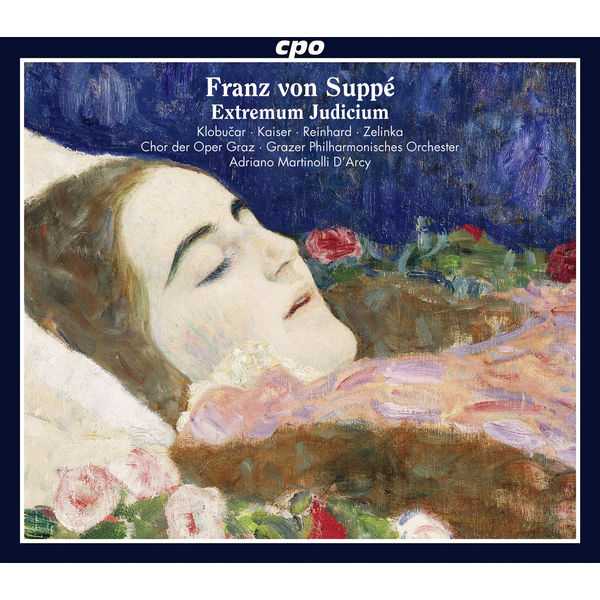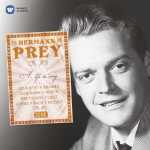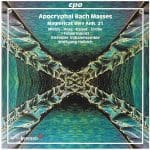
Composer: Franz von Suppé
Performer: Wilfried Zelinka, Margareta Klobucar, Dshamilja Kaiser, Taylan Reinhard, Choir and Extra-Choir of Oper Graz
Orchestra: Grazer Philharmonisches Orchester
Conductor: Adriano Martinolli D’Arcy
Format: FLAC (tracks)
Label: CPO
Catalogue: 777842-2
Release: 2013
Size: 417 NB
Recovery: +3%
Scan: cover
Extremum Judicium
CD 01
Part I
01. Prelude
02. Introitus and Kyrie (Soprano, Alto, Tenor, Bass, Chorus)
03. Magna dies prope est dies vindicate (Tenor)
04. Dies Irae (Chorus)
05. Victa a superum vi, tacet porcella (Bass)
06. Tuba mirum (Bass, Chorus)
07. In pulverem nunc omnes prostrati (Soprano)
08. Rex tremendae (Soprano, Alto, Tenor, Bass, Chorus)
09. Assurgit tandem Deus (Tenor)
10. Recordare (Soprano, Alto, Tenor, Bass, Chorus)
11. Procul a Domini, sede, procul a coeli clarissima luce (Bass)
12. Confutatis (Soprano, Alto, Tenor, Bass, Chorus)
13. Et angelus pacis apparet (Alto)
14. Lacrymosa (Alto, Chorus)
CD 02
Part II
01. Domine Jesu (Chorus)
02. Et quia Deo gratum est (Bass)
03. Hostias (Bass, Chorus)
04. Clamemus: Sanctus, Santus, Sanctus est Deus Sabaoth! (Tenor)
05. Sanctus (Chorus)
06. Benedictus nuntius Dei (Alto)
07. Benedictus (Soprano, Alto, Tenor, Bass, Chorus)
08. Preces et lacrymas fundite modo pro eis (Soprano)
09. Agnus Dei – Lux aeterna (Soprano, Alto, Tenor, Bass, Chorus)
10. Et jam preces ultima fiat (Bass)
11. Libera me (Chorus)
This sensational work was only recently discovered in Trieste, despite being composed in 1855.
Extremum Judicium comprises the standard parts of a requiem linked together with ariosi, recitatives and dramatic interludes.
Franz von Suppé was an extremely popular composer of operas and operettas in mid-19th century Vienna, though today he is mostly remembered for two overtures, Poet and Peasant (1846) and Light Cavalry (1866), which have been used in films, TV commercials, and cartoons. Yet Suppé also composed sacred music that has slipped into obscurity, such as his requiem oratorio, Extremum Judicium (1855), of which an autographed manuscript was found in Trieste, complete with parts. Based on the Roman Catholic missa pro defunctis, the libretto also includes additional Latin texts set as solo arias, lending the requiem mass a much grander presentation of nearly operatic proportions. This CPO recording by Adriano Martinolli d’Arcy and the Graz Philharmonic Orchestra is a major revelation, for there is no clear evidence that Extremum Judicium was ever performed in Suppé’s lifetime, and this recording is the first complete version available on CD. Suppé’s music is grim and apocalyptic, with moments of theatricality and grandiosity that would have made it impractical for use in funerals. Rather, it is an imposing meditation on the Last Judgment that runs for close to two hours, and between dry passages of austere counterpoint are vivid choruses that are sometimes startling in their urgency. While this work falls short of the pathos of Mozart’s Requiem K. 626 and the power of Verdi’s Requiem, it does seem to evoke the former and anticipate the latter, and listeners will be reminded of those composers in several movements.



